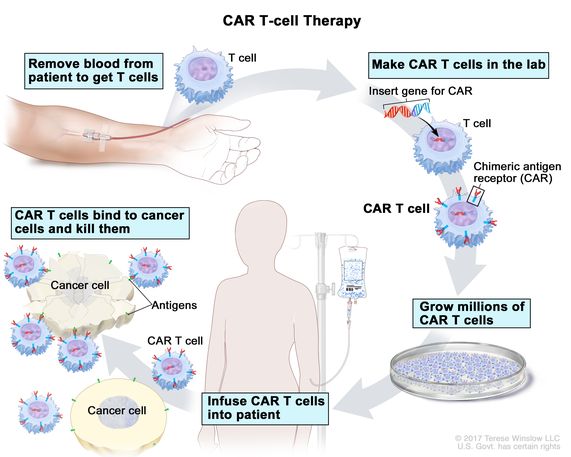chimeric antigen receptor T-cell therapy
(ky-MEER-ik AN-tih-jen reh-SEP-ter T-sel THAYR-uh-pee)
A type of treatment in which a patient's T cells (a type of immune system cell) are changed in the laboratory so they will attack cancer cells. T cells are taken from a patient’s blood. Then the gene for a special receptor that binds to a certain protein on the patient’s cancer cells is added to the T cells in the laboratory. The special receptor is called a chimeric antigen receptor (CAR). Large numbers of the CAR T cells are grown in the laboratory and given to the patient by infusion. Chimeric antigen receptor T-cell therapy is used to treat certain blood cancers, and it is being studied in the treatment of other types of cancer. Also called CAR T-cell therapy.
